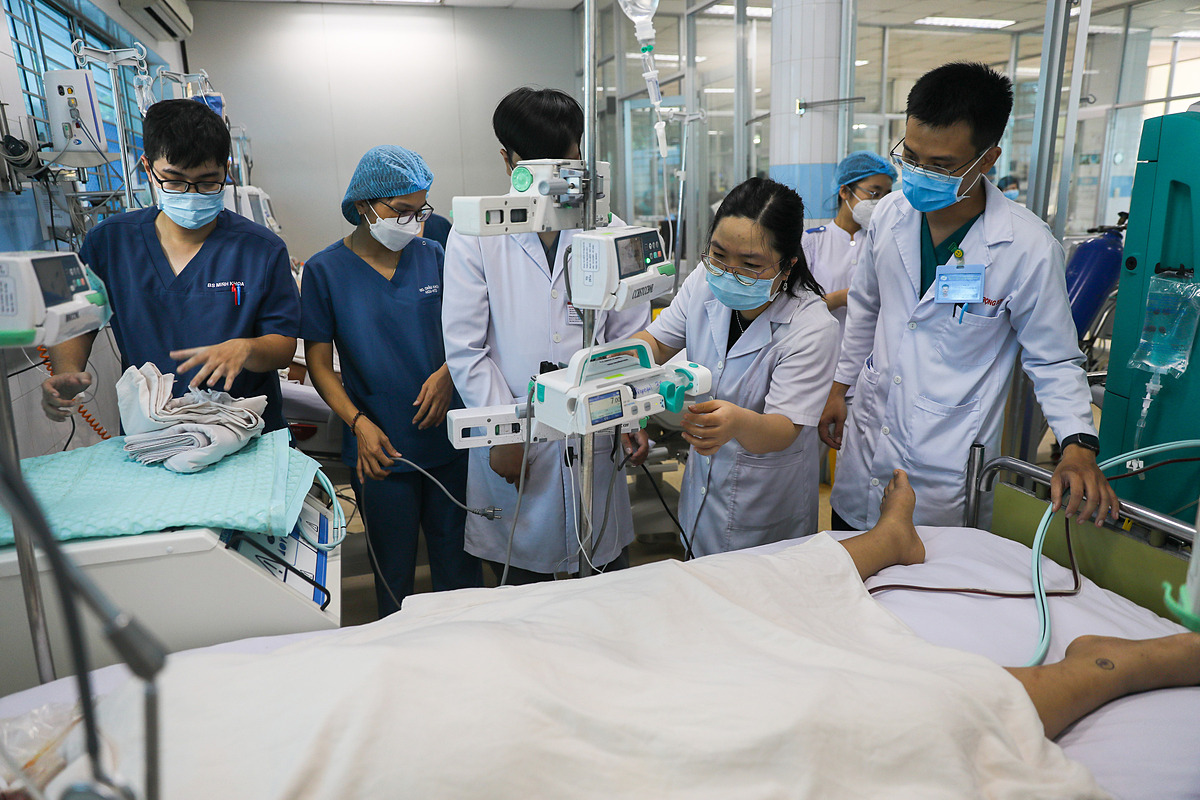On 11/7, the Ho Chi Minh City Center for Disease Control reported 838 new dengue fever cases in the past week, bringing the total number of cases since the beginning of the year to 14,370, a 153% increase compared to the same period last year. Over 11,000 cases were recorded in the former Ho Chi Minh City area, nearly 2,500 in the former Binh Duong area, and 862 in Ba Ria-Vung Tau.
Surveillance data indicates that the city is entering the peak of the rainy season, creating favorable conditions for the breeding of disease-carrying mosquitoes. The number of weekly cases is increasing rapidly and spreading widely. Major outbreaks between 2019 and 2022 occurred from mid-June to the end of August. Therefore, this period requires heightened vigilance.
Health experts warn that without consistent mosquito control and larval source elimination, the risk of secondary infections is high, potentially straining the healthcare system, particularly children's and regional hospitals. Ho Chi Minh City continues to prioritize proactive prevention, early detection, and thorough treatment as key strategies to control the dengue fever outbreak.
 |
Doctors at the Ho Chi Minh City Hospital for Tropical Diseases treat a dengue fever patient. Photo: Quynh Tran |
Doctors at the Ho Chi Minh City Hospital for Tropical Diseases treat a dengue fever patient. Photo: Quynh Tran
Local authorities are strengthening surveillance activities, outbreak management, and risk assessment, while guiding residents on preventive measures at home to minimize infections and fatalities. The "Online Healthcare" application continues to be used to receive reports and monitor high-risk areas.
Eliminate mosquito breeding grounds by locating and removing stagnant water sources where mosquitoes lay eggs. Cover buckets, containers, and ponds used for domestic water storage when not in use, and clean them regularly. Frequently change and clean flower vases, plant pot saucers, and offering cups, or introduce mosquito-eating fish into miniature landscapes and aquatic plants. Water containers for household use that are infrequently or not currently used should be properly arranged, covered, and prevented from accumulating water.
Protect against mosquito bites by using mosquito nets, sprays, coils, repellents, and swatters. Cooperate with health authorities during mosquito control campaigns and chemical spraying operations.
Report potential mosquito breeding sites to the "Online Healthcare" application for prompt action. If you experience a fever, seek immediate medical attention for diagnosis and treatment, and avoid self-treating at home.
Le Phuong












